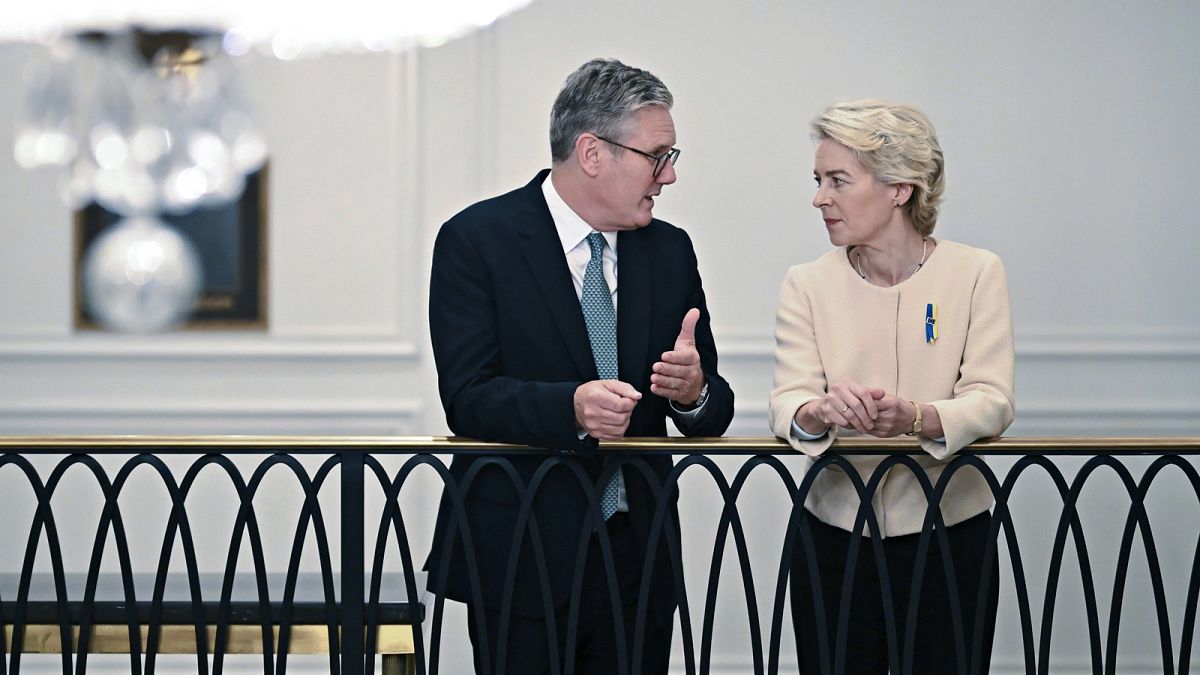European leaders are voicing alarm over the military attacks launched overnight between Israel and Iran and calling for immediate de-escalation to avoid an all-out war that could spiral across the Middle East and beyond.
British Prime Minister Keir Starmer was one of the first heads of government to react, urging “all parties to step back and reduce tensions urgently”.
“Escalation serves no one in the region. Stability in the Middle East must be the priority and we are engaging partners to de-escalate,” Starmer said on social media. “Now is the time for restraint, calm and a return to diplomacy.”
His Dutch countepart, Dick Schoof, issued a similar message.
“Alarming attacks in the Middle East,” Schoof said. “The Netherlands calls on all parties to remain calm and to refrain from further attacks and retaliation. In the interest of stability in the region, immediate de-escalation is necessary.”
German Chancellor Friedrich Merz convened his security cabinet after speaking by phone with Israeli Prime Minister Benjamin Netanyahu, who informed him about the objectives behind the military operation.
The Iranian nuclear program “violates the provisions of the Nuclear Non-Proliferation Treaty and poses a serious threat to the entire region, especially to the State of Israel,” Merz said in a statement as he warned against regional instability.
Merz cited the recent conclusion by the International Atomic Energy Agency (IAEA) that found Iran was not complying with its nuclear obligations for the first time in 20 years.
Germany stands ready “to exert influence on the parties to the conflict using all diplomatic means at our disposal. The goal must remain to prevent Iran from developing nuclear weapons,” the chancellor added.
French President Emmanuel Macron also gathered his defence and security team to assess the escalation of hostilities and implement “all necessary steps” to protect French nationals, diplomats and military officials deployed across the region. In a post on X he condemned Iran’s ongoing nuclear program and reaffirmed Israel’s right to defend itself and ensure its security, while echoing political calls for “maximum restraint” and immediate de-escalation.
“Peace and security for all in the region must remain our guiding principle,” Macron said.
As part of his diplomatic outreach, Macron spoke with US President Donald Trump, with whom he is believed to be in regular contact, as well as with Merz, Starmer and the leaders from Saudi Arabia, Qatar, the United Arab Emirates (UAE) and Jordan.
Turkish President Recep Tayyip Erdoğan was highly critical of Israel, denouncing the military strikes as a “clear provocation that disregards international law”.
“The Netanyahu administration is trying to drag our region and the entire world into disaster with its reckless, aggressive and lawless actions,” Erdoğan wrote in Turkish, also posted on X.
“The international community must put an end to Israeli banditry that targets global and regional stability,” he went on. “The attacks of Netanyahu and his massacre network, which are setting our entire region on fire, must be prevented.”
Speaking to ‘both sides’
In Brussels, the leaders of the European Union institutions weighed in on the “deeply alarming” chain of events.
“Europe urges all parties to exercise maximum restraint, de-escalate immediately and refrain from retaliation,” Ursula von der Leyen, the president of the European Commission, said in a statement that did not mention Israel or Iran by name.
“A diplomatic resolution is now more urgent than ever, for the sake of the region’s stability and global security,” von der Leyen added.
High Representative Kaja Kallas described the situation as “dangerous” and said that “diplomacy remains the best path forward”. Earlier on Friday, Kallas spoke with her Israeli counterpart, Gideon Sa’ar, and her team was in touch with Tehran.
“We’re speaking to both sides and channels are open,” her spokesperson said.
Asked if the Commission was ready to evacuate its diplomatic presence on the ground, which is considered to be limited in scope, the spokesperson said: “Appropriate measures have been taken to reinforce the security of our staff and to mitigate risks.”
Other capitals offered their initial reactions through their foreign affairs ministries.
“The situation in the Middle East is deeply concerning, and the cycle of military escalation must be brought to an end,” said Finland’s Elina Valtonen, noting the staff of the Finnish embassy in Tehran was “safe” and continued to operate “normally”.
Austria’s Beate Meinl-Reisinger said her country and its partners should prepare “for all possible scenarios,” as Ireland’s Simon Harris cautioned that “further escalation would bring a very real risk of regional spillover”.
“This would be disastrous for all the peoples in the region,” Harris said.
Meanwhile, the Kremlin’s spokesperson said Vladimir Putin was receiving “real-time updates” on the “sharp escalation in tensions” adding that “Russia is concerned and condemns the sharp escalation in tensions between Israel and Iran.” Russia is a close ally of Iran, which is under sanctions for providing military supplies to support the invasion of Ukraine.
The renewed conflict between Israel and Iran comes two days before the leaders of the Group of Seven (G7) are set to meet for a two-day summit in Canada. The summit’s agenda was intended to focus on Russia’s war on Ukraine and the international trade system, but the latest developments are expected to alter that agenda.
This story has been updated with more reactions.
